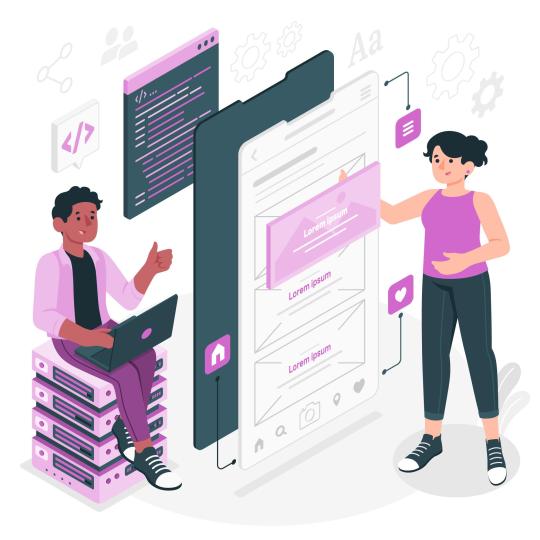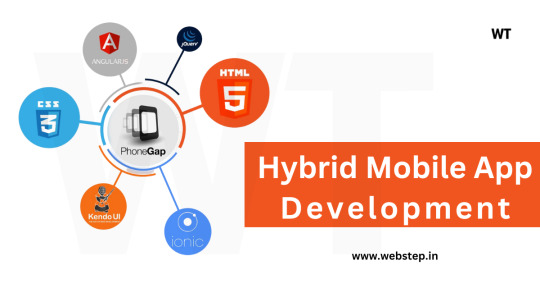#Hybrid mobile app development
Explore tagged Tumblr posts
Text
#mobile app development company#app development service#ios app development companies#android app development service#android app development company#ios apps development#cross platform application development#hybrid mobile app development#multiplatform mobile app development
2 notes
·
View notes
Text
Mobile App Development Services in India | Stellanova Globaltech Pvt Ltd
Stellanova Globaltech Pvt Ltd offers top-notch mobile app development services in India. We create innovative, user-friendly, and scalable mobile applications tailored to your business needs. From Android to iOS, we deliver high-performance apps that drive success. Contact us today!

#mobile app development services in india#custom mobile app development services#mobile app development company#hybrid mobile app development
0 notes
Text
0 notes
Text

Ahom Technologies offers exceptional hybrid mobile app development and specializes in creating innovative solutions through hybrid app development. As a trusted hybrid mobile application development company, we stand out among top hybrid mobile app development companies. Choose our expertise as your hybrid application development company for unparalleled hybrid app development companies and reliable hybrid mobile app development services tailored to your business needs.
#hybrid mobile app development#hybrid app development#hybrid mobile application development company#hybrid mobile app development companies#hybrid application development company#hybrid app development companies#hybrid mobile app development services
0 notes
Text
Hybrid Mobile App Development Services
Sen Six Tech specializes in hybrid mobile app development, delivering high-performing, cross-platform solutions tailored to your business needs. Our expert developers use advanced frameworks like Flutter and React Native to create apps that work seamlessly across iOS and Android platforms. With a focus on scalability, speed, and user experience, we ensure your app reaches a broader audience while reducing development costs and time. From design to deployment, we provide end-to-end support to help you succeed in the competitive mobile landscape.
0 notes
Text
Native vs. Hybrid: Which Mobile App Development Approach Is Best?
Discover the key differences between native and hybrid mobile app development to determine the best approach for your project, focusing on performance, cost, and flexibility.
0 notes
Text
Native apps excel in performance but require separate codebases. Hybrid apps are faster time-to-market, but may have & device integration limitations. Know your right choice.
#Native app development#native mobile app development#hybrid app development#hybrid mobile app development#native vs hybrid apps
0 notes
Text
https://www.elicit.digital/hybrid-app-development
Cross-Platform Mobile App Development
Unlock the potential of cross-platform mobile app development with Elicit Digital! We build once and deploy everywhere with efficiency. If you want to expand your audience with us, we can close the gap between platforms to deliver unmatched user experiences.
0 notes
Text
Unleash The Potential Of Hybrid App Development For Your Business | Stark Edge
Are you aiming to reach a wider audience with your app? Stark Edge specializes in hybrid app development, offering cost-effective solutions that run seamlessly across different platforms. Our expertise enables you to engage a broader user base, maximize market coverage, and achieve your business objectives efficiently.

#starkedge#best seo services#seooutsourcingindia#shopify development services#hybrid mobile app development#hybrid app development#hybrid app development company#Best mobile app development company
0 notes
Text
Hybrid App Development vs. Native App Development: A Comprehensive Comparison
#mobile app development#mobile application development#app development company#application development company#application development services#app development services#hybrid app development#native app development#hybrid mobile app development#native mobile app development#lucid outsourcing solutions#lucid outsourcing#lucid solutions#mobile app development services#mobile app development company
0 notes
Text
#mobile app development#hybrid mobile app development#hybrid app development#custom software development
0 notes
Text

Looking for the best hybrid mobile app development in India? Our expert team specializes in hybrid app development in India, delivering seamless and responsive apps across all platforms. As a leading hybrid mobile application development company in India, we combine native performance with web technologies to create powerful apps. Trust us as your go-to hybrid mobile app development company in India for innovative solutions that enhance your business's mobile presence.
#hybrid mobile app development#hybrid app development#hybrid mobile application development company#hybrid mobile app development companies#hybrid application development company#hybrid app development companies#hybrid mobile app development services
0 notes
Text
Hybrid Mobile App Development for Versatile Solutions
Sen Six Tech offers expert hybrid mobile app development services to create seamless, cross-platform applications. Our team leverages advanced technologies to build feature-rich apps that deliver a consistent experience across iOS and Android devices. Whether you’re focusing on B2B efficiency or B2C engagement, we ensure your hybrid app is scalable, efficient, and tailored to your business needs. Partner with us to enhance your digital presence with robust and innovative hybrid app solutions.
0 notes
Text
Hybrid Android app development services

In today's digital age, mobile applications have become indispensable tools for businesses looking to engage with their customers and stay ahead of the competition. With the ever-expanding Android user base, businesses must ensure their apps are not only feature-rich but also accessible across a variety of devices and platforms. This is where hybrid Android app development services come into play, offering a cost-effective and efficient solution for businesses aiming to reach a wider audience. Let's delve into the world of hybrid Android app development and explore how it can revolutionize your mobile strategy.
Understanding Hybrid Android App Development
Hybrid Android app development involves creating applications that combine elements of both native and web applications. These apps are built using web technologies such as HTML, CSS, and JavaScript, and then wrapped in a native container that allows them to be installed and run on Android devices. This approach offers the best of both worlds, allowing developers to leverage the power of web technologies while still providing access to native device features and functionality.
The Benefits of Hybrid Android App Development
Cross-Platform Compatibility: One of the most significant advantages of hybrid Android app development is its ability to run on multiple platforms with minimal changes to the codebase. This means businesses can reach a broader audience without having to develop separate apps for each platform, saving time and resources in the process.
Cost-Effectiveness: Developing separate native apps for each platform can be costly and time-consuming. Hybrid Android app development services offer a more cost-effective solution, as developers can write the code once and deploy it across multiple platforms. This significantly reduces development costs and time to market, making hybrid apps an attractive option for businesses with budget constraints or tight deadlines.
Faster Development Cycle: Hybrid Android app development services often come with tools and frameworks that streamline the development process, allowing developers to build and deploy apps more quickly than with traditional native development methods. This rapid development cycle enables businesses to iterate on their apps more frequently, staying ahead of the competition and meeting the evolving needs of their customers.
How Hybrid Android App Development Services Can Benefit Your Business
Reach a Wider Audience: By leveraging hybrid Android app development services, businesses can reach users across a variety of devices and platforms, including smartphones, tablets, and even desktop computers. This broader reach can help businesses expand their customer base and increase their revenue potential.
Enhanced User Experience: Hybrid apps offer a seamless user experience, with fast loading times and smooth performance across all devices. By providing a consistent experience across platforms, businesses can improve customer satisfaction and loyalty, leading to higher retention rates and increased engagement.
Cost Savings: Developing a single hybrid app that runs on multiple platforms is far more cost-effective than building separate native apps for each platform. This not only saves money on development costs but also reduces ongoing maintenance and support expenses, making hybrid Android app development services a smart investment for businesses of all sizes.
Conclusion
Hybrid Android app development services offer a compelling solution for businesses looking to expand their mobile presence and reach a wider audience. With cross-platform compatibility, cost-effectiveness, and a faster development cycle, hybrid apps provide businesses with the tools they need to succeed in today's competitive marketplace. Whether you're a startup looking to launch your first app or an established enterprise seeking to optimize your mobile strategy, hybrid Android app development services can help you achieve your goals and unlock new opportunities for growth.
#hybrid mobile app development#hybridapplication#hybridapp#mobileapplicationdevelopment#webstep technologies
1 note
·
View note
Text
Hybrid mobile app development offers Savvient Technologies a cost-effective and time-efficient solution, utilizing web technologies alongside native app features. While it accelerates development cycles and allows for cross-platform compatibility, there are trade-offs in performance and potential compatibility issues. To mitigate these drawbacks, Savvient emphasizes best practices like code optimization and thorough testing across devices. Overall, hybrid development enables Savvient to deliver versatile solutions, balancing efficiency and performance considerations.
#Hybrid mobile app development#Hybrid mobile app development company Australia#Hybrid App Sydney#Hybrid App Development Australia
1 note
·
View note
Text
Hybrid mobile app development in USA
Unlock the advantages of collaborating with Mobiloitte for your hybrid mobile app development. Benefit from our seamless support across multiple platforms, ensuring wider audience reach. Our focus on exceptional UI/UX design guarantees engaging user experiences, setting your app apart. Enjoy cost-effective solutions maximizing efficiency without compromising quality. With our commitment to exceptional safety measures, your app remains secure. Plus, our streamlined development process enables quick market entry, gaining a competitive edge. Trust Mobiloitte for innovative, reliable hybrid app solutions driving success.
#mobile app development#mobile app development company#mobile app development services#mobile app development frameworks#mobile app development software#hybrid mobile app development#android mobile app development#cross platform mobile app development#web and mobile app development company#Mobiloitte#Blockchain and Metaverse Company
0 notes